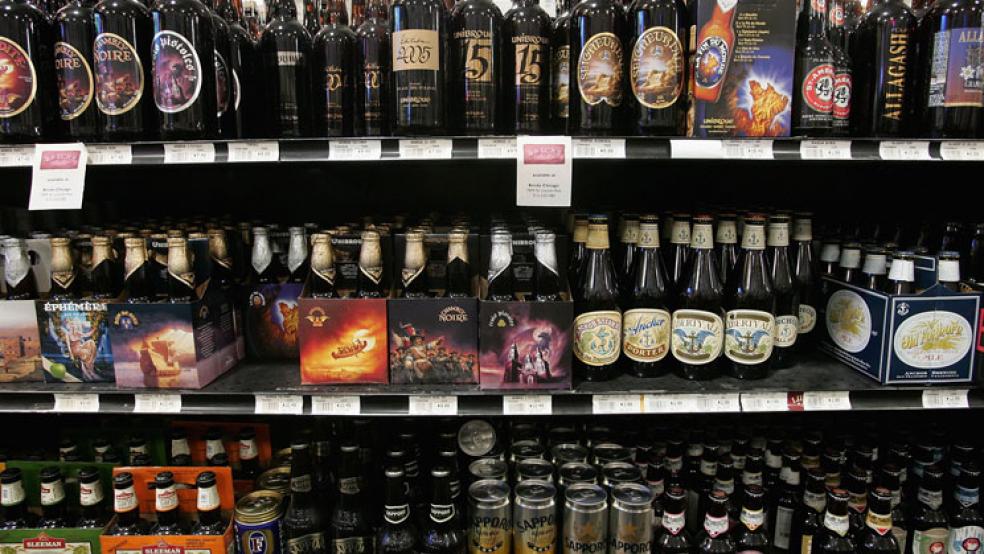Once upon a time, American beer was regarded with the same withering derision as American cheese — mass produced, flavorless and soulless.
Then came the microbrew boom. Starting in the 1990s and spearheaded in many ways by The Boston Beer Company, maker of Sam Adams, microbrews flourished in the U.S. as Americans decided to embrace craftsmanship and counter European beer snobbery with their own hoppy patriotism. In 1990, there were 284 breweries in the U.S. By 2000, there were 1,556. Last year, there were 3,464.
Now the beer aisle at your local grocery store is filled with lagers and pilsners, hefeweizens and stouts, pumpkin spice ales and row after row of IPAs. American brewing has never had it so good.
Related: Big beer merger could ripple across wider beverage sector
Except that U.S. beer sales haven’t kept pace with that boom, and sales of light beer have fallen.
That’s a big reason Anheuser-Busch InBev is paying $104.2 billion to buy SABMiller and create an even bigger brewing giant that will control almost 30 percent of the global beer market.
The companies may be looking for ways to boost global sales growth, but American beer drinkers have other concerns. There was already a decent amount of handwringing in 2008, when Belgian brewer InBev bought Anheuser-Busch. Budweiser, the symbol of American beer (for better or worse) was being bought by a European company. Those worries may have stopped some shoppers from picking up a six pack of Bud, but in the end the change was largely ignored by the American public. Bud Light, despite a 13 percent drop in shipments since 2007, remains the biggest selling beer in America. The sagging sales may have more to do with the emerging taste for all the microbrews that keep bubbling up than with foreign ownership of America’s biggest brands.
Given the flourishing of microbrew culture (and business) in the U.S. why then is there so much consternation in some quarters about the pending purchase of SABMiller?
Related: U.S. Probes Allegations AB InBev Seeking to Curb Craft Beer Distribution
The problem, other than a philosophical objection to an all-consuming monopoly, is in distribution. The fact of the matter is that the vast majority of those 3,500 microbrews still rely on the big boys for distribution. The beer itself may be produced in small batches and flavored with all the TLC the brewers can muster, but the big companies are needed for the actual job of getting the six packs in your local store, bar or restaurant. And the craft industry is alleging that AB InBev is beginning to throw its weight around.
According to the U.S. Justice department, AB InBev is using its muscle and ever-growing market share to try to force craft brewers out of the way by insisting the distributors carry only its products. By essentially preventing microbrews from getting their products to market, AB InBev can starve them out. Watchdogs are already worried that a bigger, more powerful beer giant will be able to raise prices as it pleases. If it can also cut into the craft beer boom, beer drinkers may be faced with both higher prices and fewer choices.




